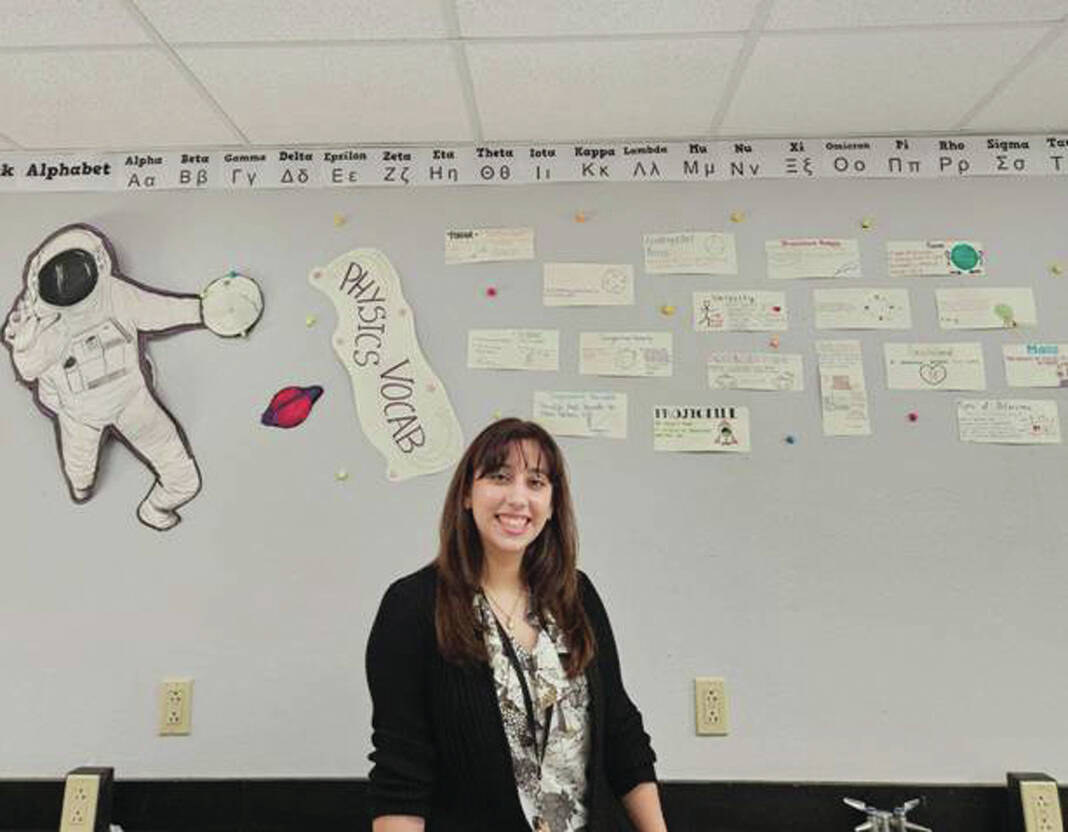|
Only have a minute? Listen instead
Getting your Trinity Audio player ready...
|

Haylin Luna is a 2021 Corps Member with Teach For America. She’s currently finishing her second year teaching AP Chemistry and AP Physics (both standard and Dual Language) at PSJA Collegiate School of Health Professions.
What motivated you to apply to join Teach For America and choose to teach in the Rio Grande Valley?
I am a Valley native. When I graduated from UTRGV during the pandemic, I was exploring what to do next professionally, and I decided to apply to TFA. Ultimately, I joined because I knew that serving as a teacher leader would help me grow as a person and be a better support person for our youth. I understand the students’ feelings regarding how overwhelming decisions about their future can be, so I felt like TFA would be the perfect way to both support others and myself.
What has been one of the most surprising things you’ve come to learn about education during your time as a classroom leader?
That it’s actually fun! Growing up, I never considered becoming a teacher, but when I joined Teach For America, I realized that I really enjoy it. Having a lot of students with different personalities and getting to interact with them daily has been great! And I have become not only a teacher, but a mentor, which has been something I have come to truly treasure. Especially after the pandemic, so many of our students just needed to talk to someone in person. I’ve enjoyed getting to see our youth being able to go back to being kids.
If you could change one thing for your students, what would it be?
We’ve become so focused on test scores, but high schoolers are ultimately still kids. It would be incredible if, as an education system, we could go back to creating connections and teaching through project-based classrooms where the emphasis is on progress through trial and error. Because of the focus on test scores, many students become unmotivated to learn, which can also be a disadvantage for teachers because we get stuck in a cycle of trying to get students hyped up while also being worried about test scores.
What lessons are you learning now that will help you continue to work toward educational equity in the future?
Being an advocate for students, starting with the ones in my class, by supporting them regardless of background or ability. Trying my best to provide a productive environment where students learn to break down the barriers they may face due to their gender, a disability, or skin color. I want my students to have the tools to advocate for themselves as they grow up and become successful!
Can you share an anecdote or personal experience from your classroom or school?
I will always remember the handwritten notes I’ve received from my students. I had a student who wrote me a card at the end of the year, who told me I was like the older sister he never had. I was able to give him the opportunity to be a kid and have someone to ask for advice instead of being the one needing to give it. He really appreciated that I would set time in class to talk to each and everyone of them. I remember growing up, I loved a couple of my teachers so much and saw them as role models, or someone outside my family I could lean on. I’m happy to be able to be this person for many of my students.
Teach for America (TFA) is the national nonprofit organization committed to the idea that one day, all children will attain an excellent education. To this end, the organization partners with communities to inspire the next generation of leaders to address unequal educational opportunities that fall along the lines of race and class. They begin this lifelong work with an initial two-year commitment to teach in some of the nation’s most underserved schools. Here in the Rio Grande Valley, 61 corps members work in seven districts across the region.



